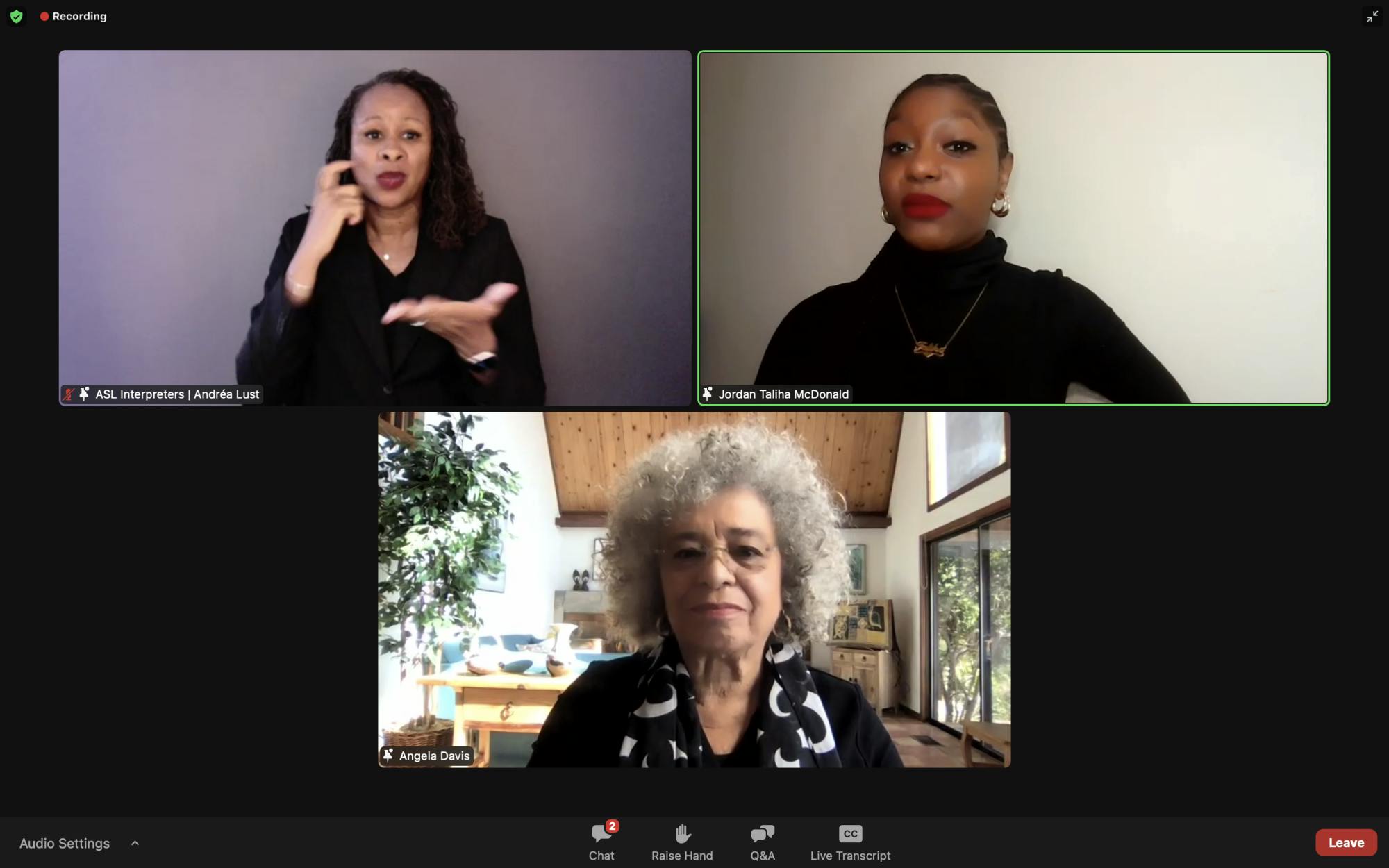In celebration of Black History Month, the Office of Pluralism and Leadership and the Black Legacy Month 2022 Committee hosted a virtual event with activist and scholar Angela Davis on Feb. 28.
According to the Hopkins Center for the Arts’ website, the virtual talk was “a conversation about resistance, liberation and modern-day activism,” during which Davis discussed “her perspectives on this year’s [Black Lives Matter] theme and [offered] valuable insights for the entire Dartmouth community.”
Davis is a prominent activist, feminist and expert on critical theory, according to the Hopkins Center’s speaker preview. Over the course of her career, she has authored nine books and lectured across the globe. During the Cold War, she was a member of the Communist Party of the United States of America; after the Soviet Union fell, she became active in promoting democratic socialism.
The keynote address began with a thanks from Black Legacy Month 2022 Co-Chair Ana Sumbo ’22, who recognized her fellow committee members as well as Black Legacy Month advisors OPAL dean Angela Brizant and OPAL program coordinator Zantasia Johnson. Sumbo also introduced moderator Jordan McDonald ’21.
McDonald introduced Davis, highlighting Davis’s authorship and recent work on mass incarceration. She also underscored Davis’s global reach as a speaker who has lectured across the world.
The dialogue between McDonald and Davis began with a question on Davis’s interpretation of Black History Month. According to Davis, her exposure to Black history began at a young age.
“At least since elementary school, Black history has been a lifeline, a reminder of the suppressed knowledges that have held … structures of racism in place,” Davis said.
When asked about what advice she might give to student activists, Davis called upon faculty, staff and students alike to utilize knowledge as a force of resistance.
“I think that, like everything else, we should engage critically with the experience of the academy, with the experience of the university, and that always requires a questioning attitude,” she said. “But also remember that revolutionary change, where it has occurred in the world, has always involved students. Students have always been at the forefront.”
Davis then discussed her work with decorated author Toni Morrison, who encouraged Davis to write an autobiography.
“I often point out that [Morrison] was such an amazing [writer and] teacher because when she looked at what I had written, she didn’t simply change it,” Davis explained. “She asked me questions –– she would say, ‘Well, where were you? And what does the place look like? What did the world look like?’”
Ian Scott ’24, an event attendee and Student Worker Collective at Dartmouth organizer, asked whether Davis had any motivational words for those participating in the March 1 student dining worker union election. David said that academic spaces may take for granted the contributions from student workers.
“Oftentimes … when college and university campuses think about our community, [they] forget about the fact that it is enabled precisely by those who do the essential work,” she said.
Davis said that there is “always a reluctance to support unionization,” but commended SWCD’s commitment to representation.
“What I would say is that you are doing really important work, and I hope you gain the support that you need,” she added. “And let me say to all the people who are on the call, this is work that you need to support.”
In an interview after the event, Sophie Williams ’23, another one of the event’s attendees, said she was first exposed to Davis’s work through her book, “Are Prisons Obsolete?” in high school. Williams noted that she enjoyed Davis’s discussion of knowledge production outside university settings.
“I liked when [Davis] was acknowledging … how much work is done behind prison walls, and I do think it’s always important to … mention that knowledge is produced in other places other than the academy,” Williams said.




